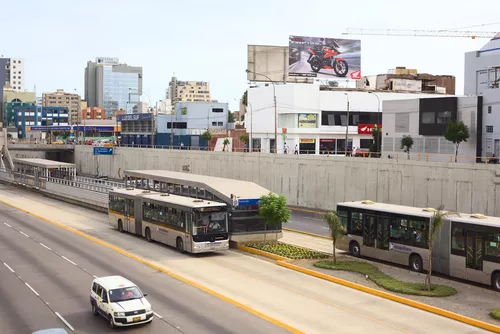
Courtesy Shutterstock
Yesterday's opinion piece about the RTA transit plan up for a vote this November — especially the "Bus Rapid Transit" component of it — earned us a message from Benjamin Ross, the author of 2014's Dead End: Suburban Sprawl and the Rebirth of American Urbanism.
He also passed along a link to an article of his that was published in Dissent magazine last month. It delves into the murky past and present of the push for BRT as a substitute for rail, and may interest those just beginning to learn about the issue.
Turns out that many BRT promoters are often aligned with highway, auto, and oil interests, and are primarily interested in steering activists away from rail projects. His conclusions include that, at worst, "BRT can be a Trojan horse for highway building, and that, even at its best, "it is a technocratic solution to a fundamentally political problem." But he really connects with the crux of it right here, getting into why rail inspires people in a way buses simply can't:
BRT ... is a hard sell. Few Americans yearn to ride a bus. And proponents of new busways find themselves on the horns of a dilemma. Adding new lanes is no way to humanize the blighted landscape of wide, strip mall–lined highways. But drivers, the vast majority of voters, are hardly eager to yield existing pavement to buses.
It is new trains that arouse popular movements. No bus line has inspired anything like the uprising that stopped a newly elected mayor from halting construction of Cincinnati’s streetcar at the end of 2013, or the long grassroots struggles for new light rail lines in the Maryland suburbs of Washington, D.C., and from Los Angeles to Santa Monica.
When BRT promotion steers activists away from rail, it undercuts political organizing. The reason for automobile-centered transportation policies is not miscalculation of costs and benefits. It is the influence of highway, auto, and oil lobbies. Only public mobilization can overcome their power. That requires a clear call for change, not half-measures that accommodate the status quo.
It's a very interesting article that goes a long way toward explaining why these superbus proposals won't be going away anytime soon. Speaking of which, here's one high-speed bus proposal that should leave you laughing.

